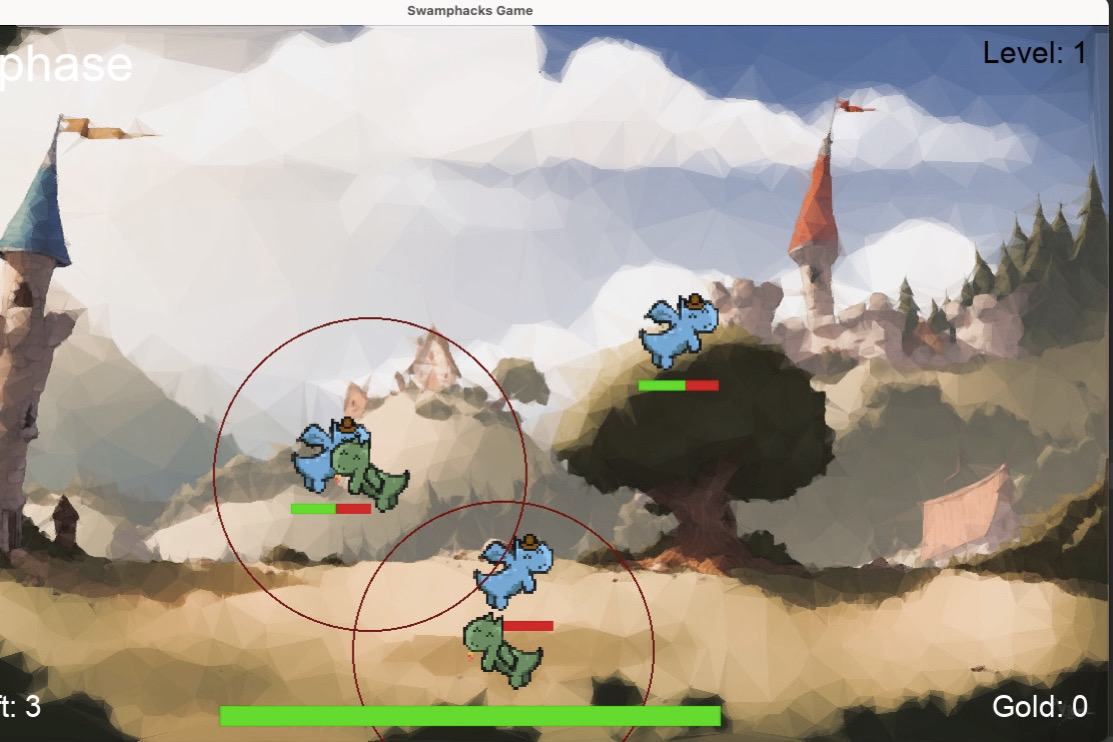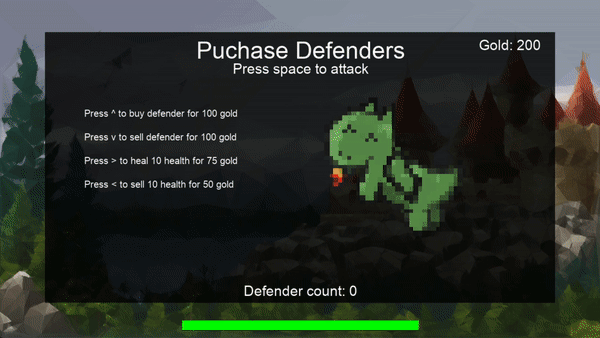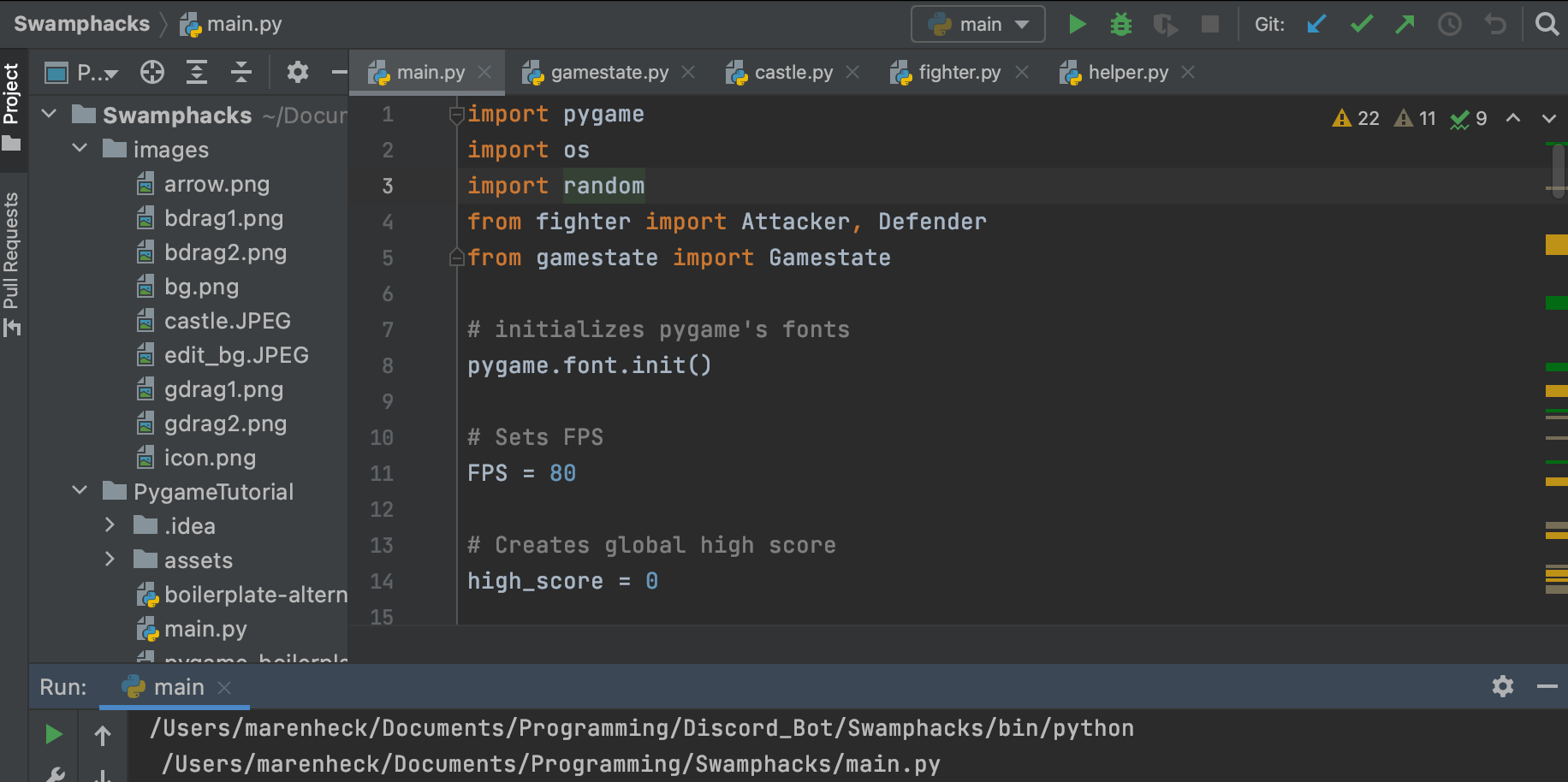
Tower Defense Game.
PROJECT V.
OVERVIEW
In Spring 2022, I participated in my university's hackathon, Swamphacks. I worked alongside three others to build a tower defense game using Python and the Pygame library.
SKILLS INVOLVED
- ·Python
- ·Programming Collaboratively
- ·Libraries (Pygame)
- ·Game Development
- ·Object-Oriented Programming
- ·Version Control

THE PROCESS
Before the hackathon, our team decided to program a game in Python because Python was considered one of the easiest languages to pickup. I knew that although I had experience with Python, I did not know much about how to translate that experience to game development. Thus, in the days leading up to Swamphacks, I studied how Pygame worked and completed related tutorials.
Since I was the only person on my team who had experience with Python, on the first day of the hackathon, I helped brief my teammates on how to setup Pygame, how to use Pygame, and how to use version control. This took up most of the first day, but by the end of it we were all set up to start programming.

I was the lead developer for my Swamphacks team and programmed most of its core features. I set up the base game and assets, programmed the core game mechanics, and helped out my teammates with their tasks where necessary. We used GitHub's project manager to post tasks and assign ourselves to tasks.
The finished product was not perfect, but it was complete. As we only had two days to complete the project, I was proud of how it turned out. I learned a lot about Python and how to interact with the Pygame library. I also brushed up on my knowledge of Git and how to not only code with others, but also how to plan, debug, and problem-solve with others.
